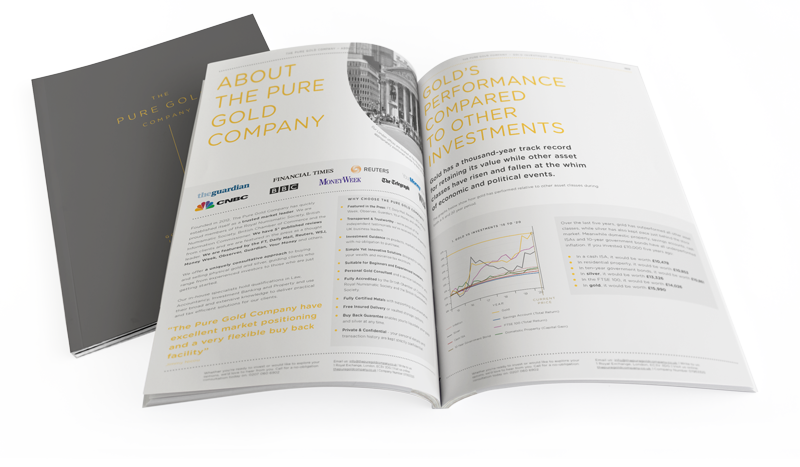Spring budget meets Trump tariffs – The impact on investors, and gold

Listen to article…
The UK economy is facing a complex mix of domestic and global economic drivers in 2025, with the recent Spring Budget playing a pivotal role in shaping the financial landscape. Add into the mix unexpectedly punitive tariffs that have shaken global trade, and the outlook for the UK and global economy is looking precarious.
What will a budget focused on tax and lower growth mean if inflation starts to spike again amid tariff pressure? And how could this affect your investments and the outlook for gold?
UK economic growth projections
New forecasts published at the Spring Budget cut growth expectations in half this year to just 1%, putting pressure on the chancellor Rachel Reeves to act to keep within her own self-imposed fiscal rules.
The Bank of England in February echoed this pessimistic sentiment, halving its growth forecasts for the year to 0.75% from 1.5% when it cut interest rates to 4.5%.
This deterioration in the economic outlook has in part been impacted by fiscal policies implemented in the Autumn budget’s – namely a rise in employers national insurance contributions and minimum wage – which remain a primary concern for business growth in the medium term.
The outlook for the UK economy remains fragile due to global uncertainties, including the global trade war now in full swing, inflation concerns, and shifts in monetary policy. The UK’s economic performance will heavily depend on how these factors interact with the policies outlined in the Spring Budget.
The trade war to end all trade wars
Global trade tensions escalated in early 2025, when the US had imposed swingeing tariffs on steel and aluminium, following up with a raft of tariffs targeted at many of its trading partners, some more severely than others. It turns out that was just the appetiser, with the main course being served on ‘Liberation Day’.
No country has emerged unscathed from the US tariff crackdown. Some, like China (36% + the 20% existing tariff), Cambodia (49%) and Vietnam (45%) have been set the highest tariffs, while others like the EU (20%) and Japan (24%) are somewhere in the middle. The UK joins the band of countries at the lower end of the scale (10%).
The UK prime minister had been hoping to agree an exemption for the country, but this did not materialise, although some in the UK may consider 10% a least worst outcome.
The effects of the trade war will inevitably be far-reaching. Alongside the impact on the cost of exports to the US, businesses could face increased costs in importing raw materials and finished products, along with knock-on effects for employment and growth.
Meanwhile retaliatory tariffs by countries that have been harder hit than the UK could force those foreign businesses to look for new markets and the UK may find itself on the receiving end of an influx of goods once destined for the US.
This means businesses will have to consider this alongside the impact of the rise in employers national insurance contributions and minimum wage. The Confederation of British Industry said the tariff announcements “are deeply troubling for businesses and will have significant ramifications around the world”.
Inflation and Cost of Living Pressures
The combination of trade disruptions and domestic policy shifts are key contributors to inflationary pressures. Overall inflation has already started to tick up. The Office for National Statistics reported 3% inflation in the twelve months to January 2025, up from 2.5% in the previous 12 months to December. More recent data on food prices show they are already rising, up 2.4% in the year to March, from 2.1% the month earlier, according to the British Retail Consortium.
Higher inflation means that disposable incomes are under strain, impacting consumer spending and investment trends. The memory of double-digit inflation and the cost-of-living crisis remains very fresh, and the possibility of further pressure on an already squeezed consumer could have a sustained impact on the economy and the chancellor’s coffers.
Inflation could also impact on the Bank of England’s plans to cut interest rates, which were raised rapidly during the last inflationary surge. High mortgage rates and the ‘bill shock’ of homeowners coming off low fixed rate mortgages are adding to the strain.
Volatility in Equity Markets
Stock markets have faced increased volatility due to global trade tensions and economic uncertainties, and the confirmation of global tariffs on April 2 hit markets around the world.
The depth and breadth of the tariff announcement was worse than expected, hence the global selloff, with Asian markets leading the charge, Europe following suit and the US markets falling across all indices, with steeper losses for multi-national companies and those selling imported goods. Meanwhile the dollar slumpedagainst a basket of foreign currencies in a sign that investors expect the tariffs to damage the US economy.
The initial negative reaction from stock markets around the world to the upending of the global trade order is understandable, and the longer-term impact is just as uncertain. Much will depend on how the rest of the world reacts to this unprecedented upheaval, including reciprocal tariffs which could escalate the hostilities. The economic impact is almost inevitable, from inflation as tariffs raise prices and seize supply chains, to potential recessions and slowing global growth. This coupled with the impact of government financial policies announced in the Autumn and Spring budgets look likely to weigh heavily on the UK outlook.
Impact on Gold
Gold has witnessed significant price surges in 2025, driven by investor concerns over economic instability. The tariff announcement sparked another spike, and while the precious metal has eased down a little since, it remains near record highs. Historically, gold has served as a hedge against inflation and market turbulence, making it a preferred asset during times of uncertainty. With the trade war intensifying and markets in flux, the long-term rise in the value of gold demonstrates its safe-haven status in times of crisis.
The 2025 UK Spring Budget comes at a crucial time when both UK and global economic conditions remain uncertain. UK economic growth forecasts had been cut even before the trade war spooked financial markets. Investors navigating increased stock market volatility should consider the diversifying nature of gold to protect their assets from the fallout of both domestic and international economic policy.

